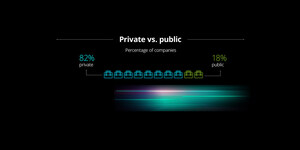WASHINGTON, June 10, 2013 /PRNewswire/ -- New Deloitte research shows that worldwide economic and strategic challenges are producing diverging defense strategies among the Top 50 Global Defense Ministries. As the conflicts in Iraq and Afghanistan wind down, higher-income countries with an average GDP per-capita income of $48,000, like the United States and Israel, have started slowing their defense spending due in part to high levels of debt and slow economic growth. By contrast, lower-income countries like Russia and Saudi Arabia with an average per-capita income of $7,000, braced by continued economic growth and lower debt levels, have begun to increase their spending on defense to counteract persistent internal and regional security threats.
(Logo: http://photos.prnewswire.com/prnh/20120803/MM52028LOGO-a )
(Logo: http://photos.prnewswire.com/prnh/20120803/MM52028LOGO-b)
The report shows that combined spending for the top 50 Global Defense nations accounts for 97 percent of the total global spend ($1,720 billion) on defense. These top 50 states are responsible for more than 92 percent of global economic output and include more than five billion people over six continents. The United States continued to outpace the rest of the world on defense, accounting for 41 percent of total global spending. In 2011, the most recent year on record, The U.S. spent more on defense resources than the next 14 countries combined and maintained its role in shaping global security.
"In the United States and globally, modern security challenges are shifting," said General Charles F. Wald, director, Deloitte Services LP and leader of the Deloitte Department of Defense practice. "Terrorist groups and hostile non-state actors, even individuals are emerging as threats to global national security. As these threats are not bound by national borders, defense leaders are rethinking their security priorities for these new 21st century realities."
Cold War era force structures, with their dependence on general purpose forces and strategic nuclear weapons are giving way to new priorities, according to the study. New military capabilities are being built around special operations and emerging concepts of operations relating to information networks.
The report shows that as nations adapt to new political and economic forces, five strategic realities are shaping their defense policies, investment levels and force structures:
- Defense spending growth shifting toward the lower-income countries
- De-nuclearization
- Declining emphasis on general purpose forces
- Increasing focus on special operations forces and capabilities
- Rise of global information networks as a military operational domain
"Our research shows that the defense landscape has begun to shift and the higher-income countries whose spending growth dominated the global defense landscape for the last decade have begun to retrench and focus on domestic priorities," said John Kerr, Deloitte's managing director for global consulting. "At the same time lower-income countries are exploiting higher growth and low debt levels to fund an unprecedented modernization and expansion of their defense capabilities."
The Top 50 countries increased overall spending on defense by 22 percent between 2006 and 2011, as many of the largest spenders waged war in Iraq and Afghanistan, and the majority of countries modernized – but generally did not grow – their armed forces. Forty of the Top 50 countries increased total annual spending by almost $319 billion between 2006 and 2011. Only 10 countries reduced annual defense spending in the same time period. Declines of more than $1 billion were recorded by Italy, Spain, Greece, Iran and Oman.
Deloitte analysis cites three difficult policy tradeoffs for the Top 50 nations whose policymakers are evaluating their defense spending. These policymakers are grappling with a new balance between military spending and rising domestic demands for social services. Governments are managing new tradeoffs between national security and civil liberties. Defense ministries are also confronting new decisions between the high military and political value of professional armed forces and growing concerns about their value and affordability.
The complete research report can be found here.
About Deloitte's Federal Government practice
Deloitte provides consulting, financial advisory, risk management, audit, and tax services to selected clients. More than 6,600 professionals are dedicated to serving U.S. federal clients with wide-ranging missions. Deloitte is helping federal organizations explore how to be more efficient or seize the opportunity to do things differently, with a deep understanding of the government's requirements, processes and systems along with insights into workforce and technology issues. Deloitte applies a mix of private-sector insights and public-sector experience to help federal agencies rethink, reduce, and restructure—from day-to-day operations and large-scale transformations. To learn more, visit www.deloitte.com/federal.
About Deloitte's Defense practice
Led by General Charles F. Wald (USAF, Ret.), Deloitte's Department of Defense (DoD) practice works with DoD clients to solve their most difficult challenges in an affordable, innovative, and value driven way. Deloitte has been working with the DoD since 1912, and today approximately 1,400 Deloitte practitioners work with all branches of the Department of Defense in Greater Washington and beyond. Serving more than 80 percent of the world's largest companies across 20 industry sectors, Deloitte has reach back to leading practices of the private sector to help the DoD tackle an increasingly complex and performance driven environment. Deloitte was ranked as the #1 Supply Chain Management (SCM) Consultancy based on 2009 revenue in Kennedy's Supply Chain Management Consulting Marketplace Report 2010-2013. To learn more about Deloitte's Department of Defense practice please visit www.deloitte.com/us/dod.
As used in this document, "Deloitte" means Deloitte LLP and its subsidiaries. Please see www.deloitte.com/us/about for a detailed description of the legal structure of Deloitte LLP and its subsidiaries. Certain services may not be available to attest clients under the rules and regulations of public accounting.
SOURCE Deloitte
WANT YOUR COMPANY'S NEWS FEATURED ON PRNEWSWIRE.COM?
Newsrooms &
Influencers
Digital Media
Outlets
Journalists
Opted In






Share this article